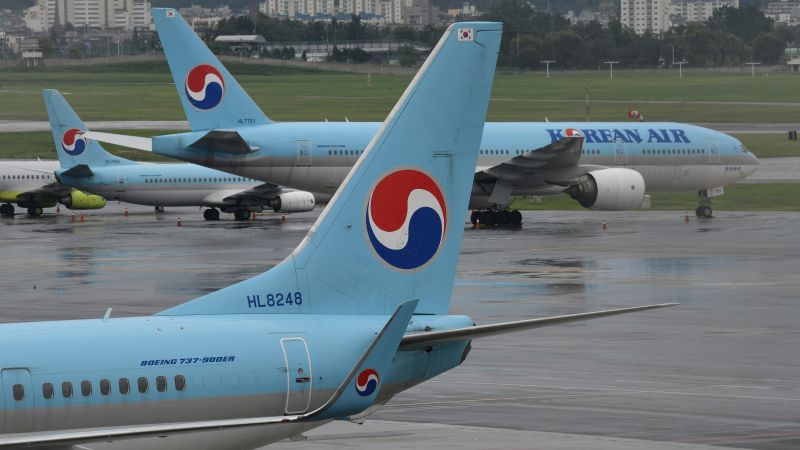Airplane turbulence is often the culprit when someone’s suitcase falls out of an overhead bin.
Now, though, it’s being blamed for prompting an airline to remove a popular food from its inflight offerings.
Korean Air has announced that from August 15, it will no longer serve ramyeon instant noodles to passengers traveling in economy class on long-haul flights.
“In the case of ramyeon service, burn accidents occur frequently due to hot water,” the airline said in a press release. “In economy class, flight attendants must move several cups of noodles filled with hot water at once, and passengers are crowded together, so the risk of burns has been high.”
The airline explained that the change to its inflight snack service on long-distance routes is “in response to the increasing trend of turbulence.” According to the airline, the number of turbulence occurrences more than doubled in 2024 compared to 2019.
Korean Air said that the move was “part of a proactive measure” that is “aimed at preventing burn accidents.”
“To enhance passenger satisfaction and diversify snack options, a self-service snack bar is also available on long-haul flights. We are committed to ensuring passenger safety and will select snacks on each route based on customer preferences,” the release added.
Those snacks include sandwiches, corn dogs, pizza and hot pockets.
Passengers in prestige and first-class cabins will still be able to get ramyeon on board, though.
Korean Air, which was ranked the 11th best airline in the world for 2024, is one of the many aviation companies thinking about the long-term risks of turbulence, which experts say is increasing because of climate change.
In 2022, Paul Williams, a professor of atmospheric science at the University of Reading in the UK, told CNN Travel that industry models predicted a double or triple-fold increase in turbulence in the coming years.
“Typically, on a transatlantic flight, you might expect 10 minutes of turbulence. I think that in a few decades this may increase to 20 minutes or to half an hour,” he said.
In some cases, pilots will tell flight attendants to stop serving hot food or drinks during turbulent periods.
In May of this year, severe turbulence on a flight from London to Singapore was so bad that one passenger died and 71 more were injured.
Meal trays, food containers, plastic bottles and tea and coffee pots were among the items that fell to the ground during the violent turbulence.
Read the full article here


